- Home
- Barry Eisler
The God's Eye View
The God's Eye View Read online
PRAISE FOR BARRY EISLER
“Eisler combines the insouciance of Ian Fleming, the realistic detail of Tom Clancy, the ennui of Graham Greene, and the prose power of John le Carré.”
—News-Press
“Furious and creative . . . Rain’s combination of quirks and proficiency is the stuff great characters are made of.”
—Entertainment Weekly
“No one is writing a better thriller series today than Barry Eisler. He has quickly jumped into my top ten best American mystery/thriller writers, along with Michael Connelly, Lee Child, Walter Mosley, and Harlan Coben. . . . Rating: A.”
—Deadly Pleasures
“Written with a delightfully soft touch and a powerful blend of excitement, exotica, and what (ever since John le Carré) readers have known to call tradecraft.”
—The Economist
ALSO BY BARRY EISLER
A Clean Kill in Tokyo (previously published as Rain Fall)
A Lonely Resurrection (previously published as Hard Rain)
Winner Take All (previously published as Rain Storm)
Redemption Games (previously published as Killing Rain)
Extremis (previously published as The Last Assassin)
The Killer Ascendant (previously published as Requiem for an Assassin)
Fault Line
Inside Out
The Detachment
Graveyard of Memories
SHORT WORKS
The Lost Coast
Paris Is a Bitch
The Khmer Kill
London Twist
ESSAYS
The Ass Is a Poor Receptacle for the Head: Why Democrats Suck at Communication, and How They Could Improve
Be the Monkey: A Conversation about the New World of Publishing (with J. A. Konrath)
This is a work of fiction. Names, characters, organizations, places, events, and incidents are either products of the author’s imagination or are used fictitiously.
Text copyright © 2016 Barry Eisler
All rights reserved.
No part of this book may be reproduced, or stored in a retrieval system, or transmitted in any form or by any means, electronic, mechanical, photocopying, recording, or otherwise, without express written permission of the publisher.
Published by Thomas & Mercer, Seattle
www.apub.com
Amazon, the Amazon logo, and Thomas & Mercer are trademarks of Amazon.com, Inc., or its affiliates.
Hardcover ISBN-13: 9781503951518
Hardcover ISBN-10: 1503951510
ISBN-13: 9781503949614
ISBN-10: 1503949613
Cover design by Rex Bonomelli
For the whistleblowers
CONTENTS
START READING
PROLOGUE
CHAPTER 1
CHAPTER 2
CHAPTER 3
CHAPTER 4
CHAPTER 5
CHAPTER 6
CHAPTER 7
CHAPTER 8
CHAPTER 9
CHAPTER 10
CHAPTER 11
CHAPTER 12
CHAPTER 13
CHAPTER 14
CHAPTER 15
CHAPTER 16
CHAPTER 17
CHAPTER 18
CHAPTER 19
CHAPTER 20
CHAPTER 21
CHAPTER 22
CHAPTER 23
CHAPTER 24
CHAPTER 25
CHAPTER 26
CHAPTER 27
CHAPTER 28
CHAPTER 29
CHAPTER 30
CHAPTER 31
CHAPTER 32
CHAPTER 33
CHAPTER 34
CHAPTER 35
CHAPTER 36
CHAPTER 37
CHAPTER 38
CHAPTER 39
CHAPTER 40
CHAPTER 41
CHAPTER 42
CHAPTER 43
CHAPTER 44
CHAPTER 45
CHAPTER 46
CHAPTER 47
CHAPTER 48
CHAPTER 49
CHAPTER 50
CHAPTER 51
EPILOGUE
AUTHOR’S NOTE
ACKNOWLEDGMENTS
ABOUT THE AUTHOR
The Panopticon must not be understood as a dream building: it is the diagram of a mechanism of power reduced to its ideal form.
—Michel Foucault
Knowledge has always flowed upwards, to bishops and kings, not down to serfs and slaves. The principle remains the same in the present era . . . governments dare to aspire, through their intelligence agencies, to a god-like knowledge of every one of us.
—Julian Assange
Comrades, I must tell you again: we must collect everything! Nothing can be missed!
—Erich Mielke, leader of East Germany’s Stasi
PROLOGUE . . . . . . . .
. . . . . . . . .
June 3, 2013
General Theodore Anders was dreaming of marlin fishing when the secure phone rang on the bed stand next to him. He sat up immediately, concerned but not unduly so. He’d been awakened plenty of times over the course of his career, and by much worse than a telephone.
He blinked and reflexively scanned the room by the dim light of the bedside digital alarm clock. His wife, Debbie, continued snoring softly beside him. She’d learned to tune out NSA’s intrusions almost immediately after he’d been appointed director. If it were an internal problem, he wouldn’t be able to tell her. If the problem were external, she’d see it on the news soon enough. Either way, she didn’t want to know, or at least not before she had to. She was a good woman.
He cleared his throat and picked up the handset before the unit could ring a second time. In the army, he’d learned to impress his superiors with an image of constant readiness. The habit had stayed with him long since his superiors had become his subordinates.
“Go ahead,” he said quietly. It was his standard greeting—a crisp, efficient command. He also liked responding to a knock with a single word: Come. The implication being that the extra syllable of the standard Come in was wasteful and unnecessary. Debbie hated it and had trained him not to do it at home. She told him it was how someone talked to a dog—come, sit, stay. Which, he had to admit, was probably part of the appeal.
He was expecting an immediate, succinct briefing on whatever situation had necessitated the call. So he was surprised to hear his executive officer instead say, “This is General Remar. Your access protocol, please.”
Anders was momentarily so surprised he said, “Mike, it’s me.”
“I’m sorry, Ted. I need your access protocol before proceeding.”
The access protocol was an additional layer of security for use of the secure phone, a way of determining the bona fides of the person on the other end of the line. In all the years they had worked together, Remar had never asked for it when calling Anders at home. Either something exceptionally bad was afoot, or his XO was taking extra care to cover his ass by following strict procedure. Which, Anders knew, amounted to the same thing. He felt a shot of warmth in his gut as adrenaline spread through his system.
He thought for a moment. What was the last protocol he’d been issued? “Romeo Bravo Foxtrot. Seven, three, niner.”
“Victor Delta Golf. Eight, one, four.”
“All right, what is it?”
“Data breach. Potentially huge.”
The warmth in his gut got hotter. “Define huge.”
“We don’t even know yet. Tens of thousands of documents. Maybe more. This guy had access to everything. PRISM. XKeyscore. Policy Directive 20. Boundless Informant. Upstream. Everything.”
The heat in his stomach was suddenly a frozen knot. This was bad. Unbelievabl
y bad.
“Who?”
“We’re 80 percent sure it’s a contractor named Snowden. Edward Snowden. Former CIA infrastructure analyst, DIA counterintel trainer, full administrator privileges.”
Full administrator privileges. For a moment, Anders actually couldn’t breathe.
“Wait,” he said. He got out of bed, picked up the base unit, and padded silently across the soft carpet into the bathroom, the long phone cable snaking along behind him. He left the light off because the darkness was suddenly comforting, a hiding place, a cocoon. He cradled the handset between his cheek and shoulder, closed and locked the door, turned on the sink faucet to mask sound, and stepped inside the glassed-in shower stall. Only then did he close his eyes and say, “Tell me he didn’t have access to God’s Eye.”
“He didn’t have permissions.”
“I know he didn’t have permissions. That’s not what I asked.” He realized his tone was sharper than he’d intended.
“There’s no evidence of a breach there. But Snowden . . . this guy is extremely capable. We’re interviewing his colleagues. The word genius is coming up a lot.”
“We need to know if God’s Eye is secure. I don’t care what else has been compromised. That is the absolute top priority.”
“I’m working on it. But it’s slow going because I can’t bring in an ordinary forensics team.”
No, of course not. In the history of the US government, there had never been a program as compartmented and prejudiced as God’s Eye. Though he was suddenly terrified none of it had been enough.
He opened his eyes and blew out a long breath, working to calm himself. “Where is Snowden now?”
“We believe he’s in Hong Kong.”
“No. He’s working with MSS?”
The Ministry of State Security was the Chinese intelligence agency, a kind of combination CIA and FBI. If Snowden was an MSS agent, maybe this could be contained. A rival intelligence service, true, but that didn’t mean certain protocols didn’t exist, certain understandings couldn’t be reached.
“We don’t think so. Greenwald and Poitras are there, too. We think he’s giving the documents to them.”
He blinked. Was he having a nightmare? Glenn Greenwald and Laura Poitras . . . this was far worse than MSS. Unimaginably worse.
A long, silent moment went by. He’d been in Santiago in 2010, when Chile had been hit by the 8.8 quake. For three long minutes, what he’d always known to be solid ground had bucked and roiled beneath him. This was like that. Only more surreal.
He forced himself to focus. “Has the Guardian contacted us yet?”
The Guardian was where Greenwald worked. Before its management published anything, they would reach out to NSA for comment.
“Not yet.”
He felt an iota of desperate hope. They still had a chance. A slim chance, probably, but . . .
“How fast can we get a team into Hong Kong?”
“There are contractors dealing with Abu Sayyaf in Mindanao right now. We could have them on the ground in Hong Kong in six hours. Maybe less.”
“Do it. Right now. OBL rules, you understand?”
The SEALs who had taken out Osama bin Laden had understood that under no circumstances was he to be captured.
“Ted, we’re talking about . . . these people are Americans.”
Remar was a good XO, and as loyal a man as Anders had ever known. As he should be. Anders had pulled him from a burning Humvee in the early days of Desert Storm, saving his life if not the right side of his face. After which Remar had hitched himself to Anders’s rising star and relentlessly watched Anders’s back. But no one was perfect, and Remar’s weakness was a streak of squeamishness. Anders wasn’t sure where it came from—some innate wiring in his personality? Childhood environment? The experience of multiple reconstructive and plastic surgeries that had fostered too much empathy with other people’s pain? Some combination, probably. And while Remar’s different worldview often functioned as a useful pressure check on Anders’s somewhat more ruthless instincts, now was absolutely not the time.
“Just take them out,” Anders said. “All three of them. Is that clear? We’ll blame it on MSS.”
“It’s not going to look like MSS.”
“Why would MSS do something and make it look like their own work?”
There was a pause. Then: “There’s another Guardian reporter with them. A Scotsman, Ewen MacAskill.”
“Then take out all four. Do we know where they’re meeting? Where they’re staying?”
“Not yet.”
Okay, probably that was too much to hope. “Put eyes and ears on them. Mobile phones, Internet access, hotel reservation systems, security cameras, satellite imagery, everything.”
“It’s already in motion.”
That sensation of the ground roiling hit him again, this time with an accompanying wave of dizziness and nausea. He willed it all back and made himself focus. What was he missing? What else did they need? What would be their fallback? If they were forced to tell a story, they would need a narrative. And that would be . . .
“Put together briefing papers. If we can’t silence Snowden, we’re going to have to undermine his credibility, and we’ll need our friends in the press for that. Make sure the word narcissist is prominent in our talking points. Be subtle. ‘I’m not saying he’s got outright narcissistic personality disorder’ . . . that kind of thing. All of it on background.”
“We already used the narcissist thing with Julian Assange.”
“Yes, and it worked. Use it again.”
“Understood.”
“Also . . . make sure to emphasize that Snowden ‘violated his oath of secrecy.’ We want that phrase picked up, too.”
There was no “oath of secrecy,” of course. The only oath government employees took was the oath to defend the Constitution. But that was just meaningless nuance. The main thing was, you could always count on the establishment media to adopt whatever nomenclature the government fed it.
“All right,” Remar said. “Who do you want spearheading the press campaign?”
“Ernest is the best in the business. Wake him up.”
“Ernest?”
“The guy who got everyone in the media to describe that Gulf of Mexico undersea oil eruption as a ‘leak.’”
“You mean the guy who came up with ‘enhanced interrogation techniques’?”
“Actually, the Gestapo invented that phrase—Verschärfte Vernehmung, I think it’s called in German. But Ernest was smart to borrow it. You think Snowden is a genius? Wait ’til he gets a load of Ernest. The media will have him armchair-psychoanalyzed as a narcissist and tried and convicted of treason in a day.”
“I’ll make sure he’s on it.”
“I’ll see you at headquarters in a half hour.”
He ended the call, opened the shower door, turned off the sink faucet, and went back into the bedroom. He paused for a moment, gazing at Debbie, still soundly asleep. He couldn’t say he loved her anymore, if he ever did. But there was always something satisfying about knowing he was protecting her. And protecting what was yours . . . that was a form of love, too, wasn’t it? Maybe the highest form.
He went into the closet and started getting dressed. He knew he probably couldn’t stop the Guardian. And he didn’t even care that much about the extent to which he could inhibit them.
All he really cared about, all that really frightened him now, was God’s Eye. In the end, everything else was negotiable.
CHAPTER . . . . . . . .
. . . . . . . . 1
Evelyn Gallagher sat in an upholstered chair outside the director’s Fort Meade corner office, knees pressed together, skirt smoothed, fingers intertwined across her lap. As always when she waited in this chair, she wondered whether the pose was too stiff, too self-consciously formal. But it was better than fidgeting. She didn’t want anyone to think the director made her nervous. Well, amend that—she didn’t want anyone to know.
Not that anyone would notice. No one else was waiting in the outer office, and the director’s executive officer, General Remar, hadn’t so much as glanced at her from behind his monitor since ushering her inside. Of course, Remar, with his eye patch and ruined profile, the left side of his scalp salt-and-pepper crew cut and the right an irregular mass of Silly Putty pink, always made her feel nervous, too. It was hard not to stare at the scar tissue, or wonder what horror lay hidden behind the patch. His wounds and his recovery were legendary at NSA, his suffering conferring a kind of sanctification not just on him, but on his battlefield rescuer, the director, as well. They were like a unit, a left and a right hand, and no matter what secrets she might be privy to, in the presence of their bond she always felt like an outsider.
She glanced discreetly at her watch. How long it would be, she never knew—it could be a minute, it could be two hours. The uncertainty might have been demeaning, but on the other hand, how many people had not just an invitation, but outright instructions to come to the director immediately whenever their system threw up a red flag?
So she waited, hearing nothing but the muted clack of Remar’s keyboard and the quiet hum of the HVAC air-conditioning the room. No, she couldn’t deny that she liked that there were no layers between her and the director—liked how special it made her feel, liked how the direct line gave her an aura of power and importance within the organization. On the other hand, the relationship left her isolated. Even within the standard compartmentalized NSA environment, the walls around her work were extreme. So far as she knew, no one other than the director himself was aware of her function, and the director had made it clear in a variety of unmistakable ways that the privilege of direct access wasn’t free, that there would be severe penalties for any osmosis, accidental or otherwise.
Which, right this moment, felt particularly inconvenient. She had something on her mind, and no colleagues she felt comfortable running it by. She wanted to ask the director but was reluctant. Because what would bringing it up with him accomplish? It was so far-fetched it would just get her flagged as untrustworthy, even paranoid. And for what? She had too much to risk. The job was right for her, the work was important, the pay was decent, and the benefits were great. The health insurance especially, without which she wouldn’t have been able to enroll Dash in the special school. Her ex-husband was a deadbeat, and she was afraid to sue him lest he retaliate by enforcing his custody rights; her mother was gone; and her father was in a nearby senior center with advancing Alzheimer’s. So she needed her job, and it was enormously reassuring to know the job seemed to need her. As for her doubts . . . well, didn’t everyone have doubts they simply learned to keep to themselves?

 All the Devils
All the Devils Requiem for an Assassin
Requiem for an Assassin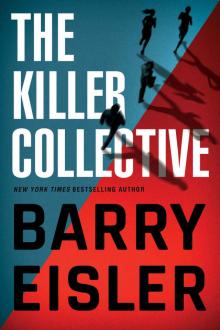 The Killer Collective
The Killer Collective The Chaos Kind
The Chaos Kind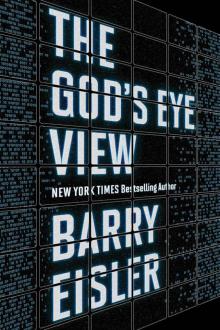 The God's Eye View
The God's Eye View Paris is a Bitch
Paris is a Bitch The Khmer Kill: A Dox Short Story (Kindle Single)
The Khmer Kill: A Dox Short Story (Kindle Single) The Last Assassin
The Last Assassin The Detachment
The Detachment The Night Trade (A Livia Lone Novel Book 2)
The Night Trade (A Livia Lone Novel Book 2)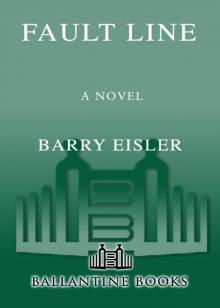 Fault Line
Fault Line Hard Rain
Hard Rain The Khmer Kill_A Dox Short Story
The Khmer Kill_A Dox Short Story London Twist: A Delilah Novella
London Twist: A Delilah Novella The Lost Coast
The Lost Coast Rain Fall
Rain Fall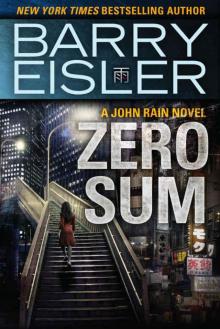 Zero Sum
Zero Sum Killing Rain
Killing Rain John Rain 08: Graveyard of Memories
John Rain 08: Graveyard of Memories A Clean Kill in Tokyo (previously published as Rain Fall)
A Clean Kill in Tokyo (previously published as Rain Fall) Inside Out: A novel
Inside Out: A novel John Rain 07 - The Detachment
John Rain 07 - The Detachment Graveyard of Memories
Graveyard of Memories The Lost Coast -- A Larison Short Story
The Lost Coast -- A Larison Short Story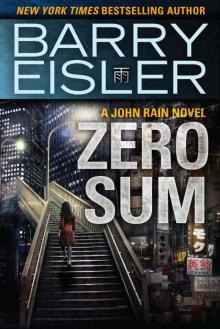 Zero Sum (A John Rain Novel)
Zero Sum (A John Rain Novel)